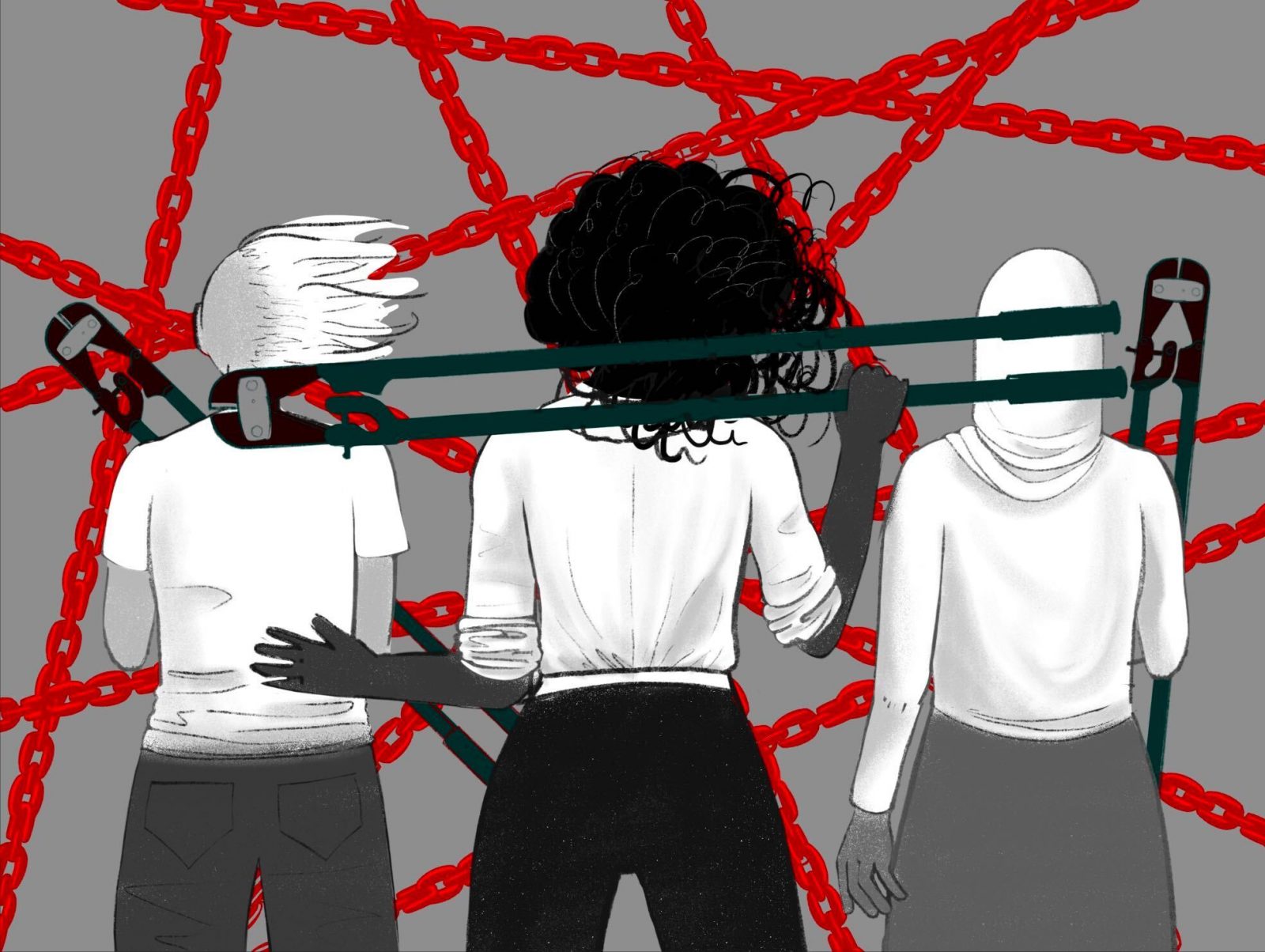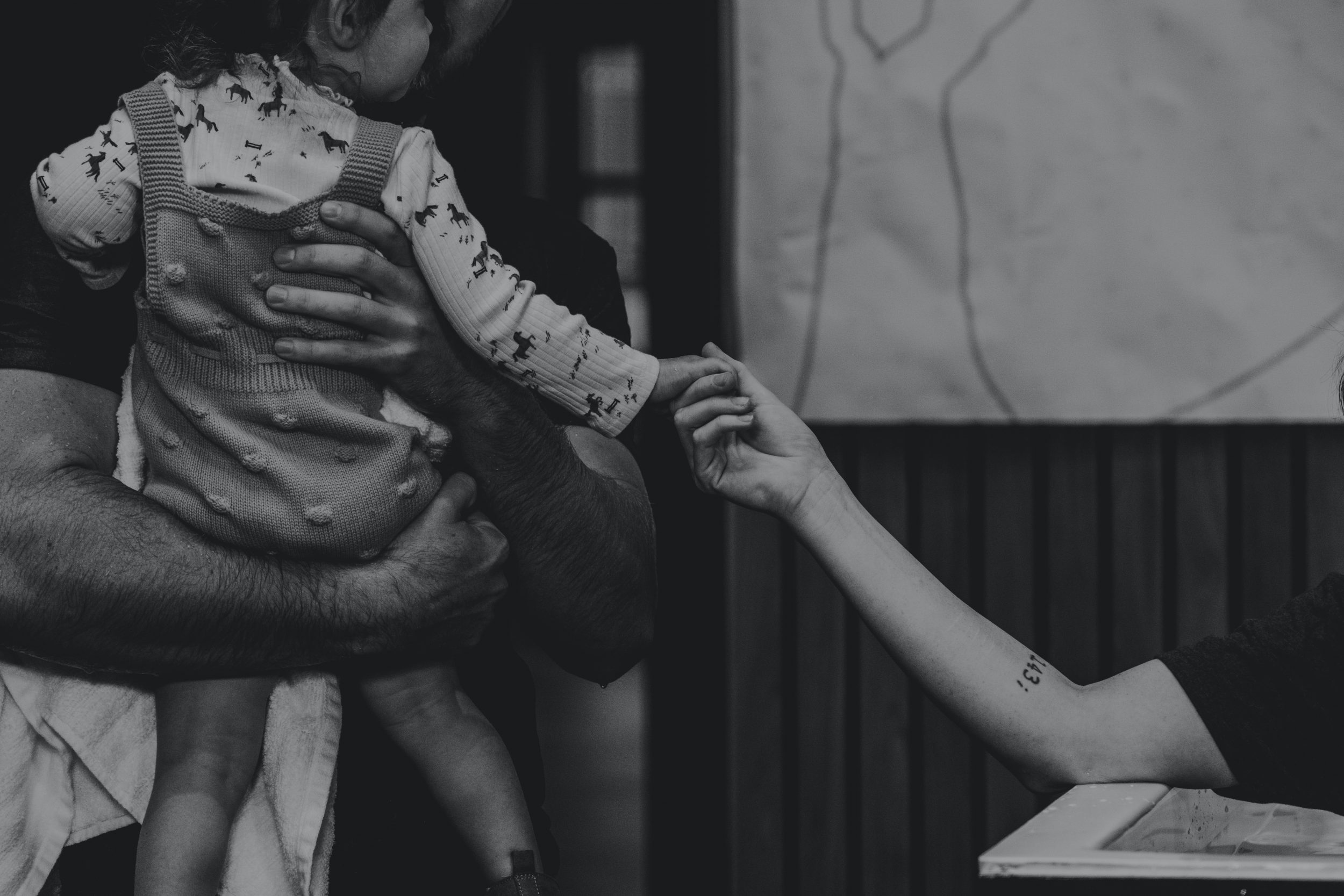When Yusef Presley was five, he was removed from his family home and separated from his mom and eight-year-old sister due to allegations of maternal abuse. “I still think about that day, still dream about it,” he told me. “My mom had our best interests” at heart, Presley said, “but she did not know how to parent. She needed help. She had a lot on her plate and was being abused by a boyfriend. Money was tight. If the local community had invested in my family, we would have been OK. We needed assistance, but my sister and I did not need to be removed and separated from our mom and our community.”
During the next eight years, Presley was sent to a multitude of foster homes. Although he was eventually adopted by an aunt, by that point, he had spent time in two facilities: First, a Kansas program that was closed by the state in 2014 and demolished in 2017 because it was too decrepit to repair; and then the Kansas Juvenile Correctional Complex (KJCC), a “reform school” that opened in 1879. “I felt like I was being starved at KJCC,” Presley said. “I felt trapped. There were fights all the time and one of the guards kept telling me that he’d see me back at KJCC once I was released. It was a demoralizing, terrible place with unlivable conditions.”

From the series
Abolition in Action
A collection of essays exploring how people are practicing abolition in their communities, in partnership with Truthout.
Thankfully, Presley defied the odds and never returned to KJCC. Now twenty-seven, he is a junior at Wichita State College and is majoring in organizational leadership and learning. He’s also a youth advocate at Destination Innovation, where his work includes organizing alternatives to youth and adult incarceration and providing support for families caught in the child welfare system. In addition, Presley is now part of a national movement to abolish prisons, end family policing, and stop the war on drugs that feeds both systems. He credits a serendipitous meeting with an abolitionist from Progeny KS with introducing him to the campaign to end what has become known as the foster-care-to-prison pipeline, the connective tissue between foster care, juvenile detention, and adult confinement.
Alan J. Dettlaff, professor at the University of Houston Graduate College of Social Work and author of Confronting the Racist Legacy of the American Child Welfare System: The Case for Abolition, is also part of this multi-issue movement. He likens today’s abolition organizing to nineteenth-century anti-slavery efforts that sought more than an end to chattel slavery, and instead sought to eradicate white supremacy itself.
Like nineteenth-century abolition, today’s abolitionist movement has both short-term and long-term goals. Changing attitudes, Dettlaff said, is key for success at both time scales. “Family policing and the violence inflicted on Black Americans, brown Americans, Native Americans, disabled Americans, and the poor run up against the myth of benevolence,” he explained. “The general public believes that the child welfare system helps vulnerable children in need of protection and support. What they don’t know is that 70 percent of kids are removed because of neglect, not sexual or physical abuse, and neglect conflates directly with poverty.”
Other facts also rankle Dettlaff. Many people, he says, were justifiably horrified by the 30,000 family separations that occurred at the U.S.–Mexico border in 2020 and 2021. “Many psychologists likened it to torture,” he said. “At the same time, 3,000 American kids are separated from their families every week and, for the most part, people turn away and say nothing about it. Aren’t these separations also tantamount to torture?” he asked.
That torture is elevated when ableism enters the mix. This is because parents with disabilities are more likely than non-disabled parents to be referred to child welfare, said Robyn M. Powell, professor at the University of Oklahoma College of Law. “Disabled people tend to have more involvement with government programs so there are more people keeping watch,” she said.
Those workers, Powell says, typically question whether disabled parents should have children at all. Instead, she argues that the system should have to prove that a disabled person can’t adequately care for their child and that having readily available supports would be insufficient to make caretaking possible. “I’ve found that when disabled parents ask for help, the request is used against them, and when they don’t ask for help, it’s used against them,” she said.
More from our decarceral brainstorm
Every week, Inquest aims to bring you insights from people thinking through and working for a world without mass incarceration.
Sign up for our newsletter for the latest.
Newsletter
Arbitrary Medicaid rules further exacerbate the problem, she said. “Personal care assistants, paid for by Medicaid, are not allowed to help with parenting. This is based on an ableist belief that disabled people should not be parents.”
Ableism, classism, and racism are baked into the system, agrees Angela Olivia Burton, a former New York court administrator, attorney, and family policing abolition activist. This is why she—like Dettlaff, Powell, and Presley—is working to educate the public about the harms caused by the over-policing of Black, brown, Native, disabled, and poor communities.
She is also working to repeal the federal legislation that institutionalized excessive family scrutiny.
“When CAPTA, the Child Abuse Prevention and Treatment Act, was passed by Congress in 1974, it established a national system of Child Protective Services (CPS),” Burton explained. “It codified family policing into law and required each state to have a CPS system” with mandatory reporting for anyone who suspects that a child may be experiencing abuse or neglect.
But, she adds, the federal definition of abuse and neglect is so amorphous, “it has allowed each state to determine the terms as they will.” And, likewise, there is not a uniform definition of who the mandatory reporters are. Each state has its own laws on who has to contact CPS and, she says, “something that may trigger an investigation in New York may go under the radar in Arizona.” In some states, the definition of neglect, which prompts more than two-thirds of calls coming into CPS offices, includes a parent quite simply being unable to provide adequate food, clothing, and shelter for their children. “It’s about poverty, a lack of resources,” Burton said. “We need to stop the bleeding and help people acquire the means to correct this lack of resources.”
Until the child welfare system is eliminated, Burton adds, “we also need to make sure that people being investigated by CPS have access to well-resourced attorneys and parent advocates to make sure that they know their rights; stop allowing anonymous complaints to be filed; stop severing children from their heritage; and stop paying someone else to raise children who are not being abused.”
Paying attention to state legislation is also important, and the results are not always what one would expect. Texas is a case in point.
In a number of conservative states such as Texas and Florida, the battle cry of “parental rights” has led a number of efforts to push through regressive policies—banning books, limiting racially inclusive and LGBTQIA+-affirming curricula, stopping comprehensive sex education from being taught in public school classrooms, and banning doctors from providing gender-affirming care to minors. But in the summer of 2023, a bipartisan effort that leaned heavily on the language of parental rights led to the passage of a raft of protections for parents being investigated by CPS in the Lone Star State. Among the changes, Texas parents can now refuse to let CPS investigators into their homes if they do not have a court order; children cannot be removed unless they are in imminent danger of harm; anonymous reporting, often by a vindictive ex or a landlord itching to raise the rent, is prohibited; and children being removed from their homes for cause must be given duffel bags and backpacks so that they do not have to use trash bags to transport their belongings. Lastly, and perhaps most importantly, Senate Bill 2120 requires attorneys to represent low-income parents who are threatened with the loss of their children.
New York abolitionists are following Texas’s lead and are building on work that began decades earlier. Joyce McMillan is leading the way. McMillan founded Just Making a Change for Families (JMACforFamilies) in 2020 following two decades of work with other organizations. After temporarily losing custody of her two children in 1999, she started—initially as an unaffiliated individual—to investigate and research the over-policing of Black and brown communities in New York City. She found stark disparities: Low-income communities of color (Brownsville, East New York, Harlem, and the South Bronx) routinely saw thousands of child removals while predominantly white communities (Greenwich Village, Park Slope, Riverdale, and the Upper East Side) did not.
Worse, she saw pervasive trauma in high-removal areas. “My oldest daughter was eight when she was taken from our home and it caused years and years of damage,” McMillan reports. “She needed extra coddling. I eventually realized that the child welfare system is preparing Black and brown children for prison. We call it a pipeline, but it is a fast-moving train, readying youth of color to be separated from their homes and neighborhoods, subjecting them to random transfers from place to place, making them follow arbitrary rules, eat at specific times, and submit to constant scrutiny and surveillance.”
But the knowledge McMillan gleaned was also personal to her, as a mother. “As an adult, I learned that a drug test is not a parenting test. My positive drug test did not speak to my love for my children and did not speak to my ability to provide for them.”
Twenty-four years later, McMillan’s fury remains audible as she makes clear that she does not want other families to suffer as hers did. This is why she and JMACforFamilies are joining current efforts to push Congress to repeal CAPTA. In addition, she and JMACforFamilies are also advocating for the repeal of the Adoption and Safe Families Act, a federal bill that allows children to be placed for adoption if they’ve spent fifteen of the last twenty-two months in foster care.
Furthermore, JMACforFamilies is working at the state level to get state legislators to follow Texas’s example and ensure that parents are told their rights, including the right to obtain counsel when child custody is at stake. Lastly, the group is pushing for a requirement of informed consent before drug testing can be done, and to end the policy that allows anonymous complaints about abuse or neglect.
Then there’s the issue of providing treatment for those who have been traumatized by family separation. “When kids go into foster care, they typically need psychological help,” McMillan said. “They rarely get it. We have to address foster care at the front end of prison policies and abolition movements.” In essence, she adds, we have to invest in our communities and support the creation of available and affordable public housing, child care, health care, education, and food security.
Abolishing family policing, advocates say, requires a multitiered and comprehensive strategy. It must merge on-the-ground legislative reforms with educational efforts to shift public attitudes about child protective services. Simultaneously, it must keep the big picture—abolition of the entire system—in focus.
For upEND, a collaborative abolition organization that works primarily with social workers, this means contesting the racism, anti-Blackness, white supremacy, colonialism, and racial capitalism that undergird the child welfare system. Among other things, upEND is working to eliminate the timeline for parents to permanently lose custody of their kids and is pushing for the kinds of concrete family supports advocated by McMillan—housing subsidies, access to counseling, health care, food, and educational and job opportunities—to ensure that family reunification is both possible and successful. Other long-term goals include decriminalizing drug use and sex work.
Likewise, Ayami Hatanaka, advocate and researcher at JMACforFamilies, underscores that the organization is working to ensure that every family threatened with child removal knows their rights at the outset of a CPS investigation. JMACforFamilies is also pushing to ensure legal advocates are available to represent families when a removal is threatened. Moreover, the group is working to shift the way reporters cover the child welfare system and is educating journalists about what Dettlaff calls “the myth of benevolence.” Helping media understand the harms caused by family separation—and seeing the interconnections between racism, poverty, and family scrutiny—is imperative.
What’s more, helping people like Presley deal with the damage of child removal remains central to abolitionist efforts. Brian Stanley, a court advocate at Avenues for Justice, one of the first alternative-to-incarceration programs in the United States, routinely works with youth aged thirteen to twenty-four when they return home from detention or foster care.
“They have tremendous trust issues,” he said. “There is often a lot of boundary testing and issues of abandonment that we have to work through. Initially, most returnees will push me away, but I am persistent and try to be steady and let them know that I’m here. I recognize their vulnerability. I get to know their families, and can meet them on a park bench if that’s what they need. My phone does not get turned off at 5 p.m.”
While this is laudable, abolitionists maintain that aftercare would be unnecessary if families were allowed to stay together in the first place. Rather than ripping children away and paying strangers to care for them, they argue that providing struggling families with financial, psychological, medical, and cultural support is paramount to building healthy communities.
In Achieving Justice for Disabled Parents and Their Children: An Abolitionist Approach, Powell reports that in 2019, 430,000 U.S. kids were separated from their families and placed in foster care; 70,000 never returned home.
“Reforms,” she writes, “are not enough to remedy the panoply of injustices these families face. Fixes to the child welfare system will not work because it is not broken. The child welfare system is doing exactly what it was designed to do: Pathologize, control and punish marginalized communities, including disabled parents and children.”
Image: Knox Tucker/Unsplash

